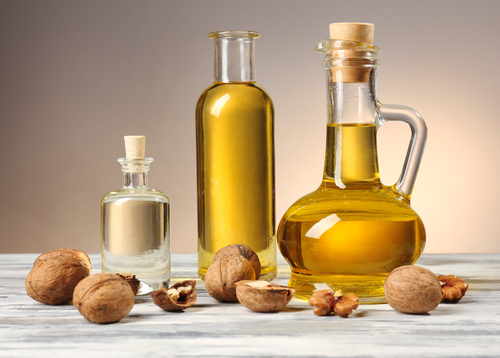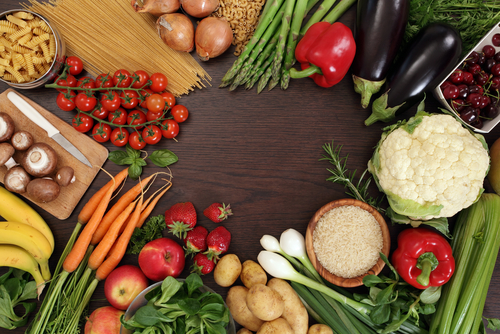1. Eat essential fats and phospholipids:
- Eat an egg a day, or six eggs a week – preferably free-range, organic and high in omega-3s. Boil, scramble or poach them, but avoid frying.
- Eat a tablespoon of seeds and nuts every day – the best seeds are flax, hemp, pumpkin, sunflower and sesame. (As for nuts go for what you like – Brazils, almonds, hazelnuts, cashews . . . ) You get more goodness out of them by grinding them first. They’re delicious sprinkled on cereal, soups and salads.
- Eat cold water, oily carnivorous fish – have a serving of herring, mackerel, salmon or sardines two or three times a week (limit tuna, unless identified as low in mercury, to three times a month).
- Used cold-pressed seed oils – choose an oil blend such as Essential Balance or Udo’s Choice for salad dressings and other cold uses, such as drizzling on vegetables instead of butter.

2. Eat slow-release carbohydrates, and avoid refined ones:
- Eat whole foods – whole grains, lentils, beans, nuts, seeds, fresh fruit and vegetables – and avoid white, refined and over-processed foods.
- Snack on fresh fruit, preferably apples, pears and/or berries.
- Eat four servings a day of whole grains and/or pulses. Try rice, rye, oats, corn, quinoa or wholewheat, boiled or in a breads and pasta; and lentils, beans or chickpeas.
- Dilute fruit juices and only eat dried fruit infrequently in small quantities, preferably soaked or with a small handful of nuts or seeds.

3. Eat vitamin, mineral and antioxidant rich foods:
- Eat half your diet raw or lightly steamed.
- Eat three or more servings a day of fresh fruit, including one of berries.
- Eat four servings a day of dark green, leafy and root vegetables such as tender stem broccoli, broccoli, kale, spinach, watercress, carrots, sweet potatoes, Brussels sprouts, green beans or pepper.
- Have a serving a day of beans, lentils, nuts or seeds – all high in folic acidWhat it does: Critical during pregnancy for the development of a baby’s brain and nerves. Also essential for brain and nerve function. Needed for utilising….
4. Eat enough protein:
- Have three servings of protein-rich foods a day, if you are a man, and two if you are a woman.
- Choose good vegetable proteinProteins are large molecules consisting of chains of amino acids. Proteins are essential nutrients for the human body – they are a building block of… sources, including beans, lentils, quinoa, tofu or tempeh (soya) and ‘seed’ vegetables such as peas, broad beans and corn.
- If eating animal protein, choose lean meat or preferably fish, organic whenever possible.

Avoid harmful fats:
- Minimise your intake of fried or processed food and saturated fatSaturated fats should be avoided wherever possible as they increase the amount of cholesterol in the blood and increase the risk of developing heart disease…. from meat and dairy products.
- Minimise your consumption of deep-fried foods. Poach, steam or steam-fry food instead.
6. Avoid sugar, reduce caffeine and drink alcohol in moderation:
- Avoid adding sugar to dishes, and avoid foods and drinks with added sugar. Keep your sugar intake to a minimum, sweetening cereal or desserts with fruit.
- Avoid or considerably reduce your consumption of caffeinated drinks. Don’t have more than one caffeinated drink a day.
- Drink alcoholic drinks infrequently, ideally wine or beer, if your homocysteine score is above 9. Otherwise, have no more than four alcoholic drinks a week.
If you’re wondering how to start making the necessary changes in your shopping, cooking and eating habits, and want help making delicious meals using the principles I outline, take a look at my cookbooks.

Comments
Join the Conversation on our Facebook Page